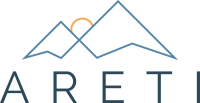CRA Tax Changes for 2023
The Canadian federal government has announced major changes to the taxation system that will take place in 2023. This could be seen as a welcome change for individuals and businesses alike.
Let’s have a look at the upcoming changes.
The Inflation Adjustment Factor:
Announced by the Canada Revenue Agency in November 2022, the new inflation adjustment factor of 6.3% will be used to calculate the 2023 tax brackets and other income tax amounts. The adjusted thresholds will take effect on January 1st, 2023. Benefits, such as the Canada Child Benefit and GST/HST credit, will be updated on July 1st, 2023.
2023 Tax Brackets:
The five income tax brackets reflect the inflation adjustment factor of 6.3% and range from:
| Income Range | Tax Rate |
|---|---|
| $0 - $53,359 | 15% |
| More than $53,359 - $106,717 | 20.5% |
| More than $106,717 - $165,430 | 26% |
| More than $165,430 - $235,675 | 29% |
| Anything above | 33% |
| *Provincial tax brackets have also been adjusted and indexed to inflation using each province's factors. | |

Basic personal amount (BPA) for 2023:
Under the new legislation, a revised BPA for 2023 has been increased to $15,000. Up to this threshold, no federal income tax is payable. However, individuals with a net income of more than $165,430 will mean a reduced BPA until a taxpayer’s income tops $235,675, when it will no longer apply.
Despite taxpayers in the highest income bracket losing out on the newly-enhanced benefit, they will still receive a BPA adjusted to inflation – presently at $13,521 for 2023.
CPP (QPP) contributions:
The maximum CPP and QPP contributions by employers and employees are now $3,754.45 and $4,038.40, respectively. At the same time, those who are self-employed are permitted a maximum contribution of $7,508.90 (CPP), or $8,076.80 (QPP), compared to last year’s expectation of $6,999.60 (CPP) or 7,552.20 (QPP).
EI premiums:
The Employment Insurance (EI) premium rate for 2023 is 1.63%, up from 2022’s rate of 1.58%, and applies up to a maximum contribution of $1,002.45 ($781.05 for Quebec) on the 2023 maximum insurable earnings of $61,500.
Tax-free savings account (TFSA) limit:
A Tax-free savings account (TFSA) is an incredible savings tool. Not only are withdrawals from these accounts tax-free, but the TFSA annual limit will increase to $6,500 and allow contributions to accumulate up to $88,000.

RRSP dollar limit:
In 2023, the dollar limit for an RRSP will be $30,780 compared to $29,210 in 2022. Contributions are limited to 18 percent of earned income each year—including self-employment and rental income—minus any pension adjustments made.
Old Age Security (OAS):
The OAS repayment threshold for 2023 has been raised to $86,912, meaning anyone who earns a taxable income above this amount will have their annual OAS payments reduced or ‘clawed back.’
First Home Savings Accounts (FHSA):
Launching as soon as April 1st, 2023, the new First-Time Home Buyer Savings Account (FHSA) allows buyers to save for their first place by making tax-deductible contributions, similar to buying into an RRSP. Furthermore, withdrawals from the FHSA and any investment earnings can be made without incurring taxation – as is the case with a Tax Free Savings Account (TFSA). Individuals can also use existing legislation, such as the Home Buyers’ Plan, in tandem with FHSA funds when purchasing their first property.

Multigenerational Home Renovation Tax Credit:
On January 1st, this brand new credit will become available to help Canadians cover part of their expenses to create a secondary dwelling for seniors or people with disabilities to live with a relative. The tax credit allows up to 15 percent of eligible expenses (up to $50,000) on such renovations and could make all the difference in creating an accessible living space.
Anti-flipping Rules:
With the recent passage of The Federal 2022 Budget, a new Residential Property Flipping Rule has been introduced. Under this rule, profits on the sale of residential property will be fully taxable as business income rather than capital gains. No principal residence exemption will be given on any property owned for less than twelve months unless the owner can prove otherwise.

Summing Up:
The Canadian government has made several changes to the tax system that will have varying effects on Canadians depending on their income level and lifestyle. With all these changes in mind, it is more important than ever to stay informed about taking advantage of any potential savings opportunities afforded by current legislation.
If you’re an entrepreneur overwhelmed with all the new tax brackets, BPA and CPP (QPP) contributions, or just want assistance with accurately filing your taxes, we’ve got your back. Our team here at Areti is here to help you navigate the new rules and find any potential savings opportunities. Don’t hesitate to contact us for more detailed information or any questions!


